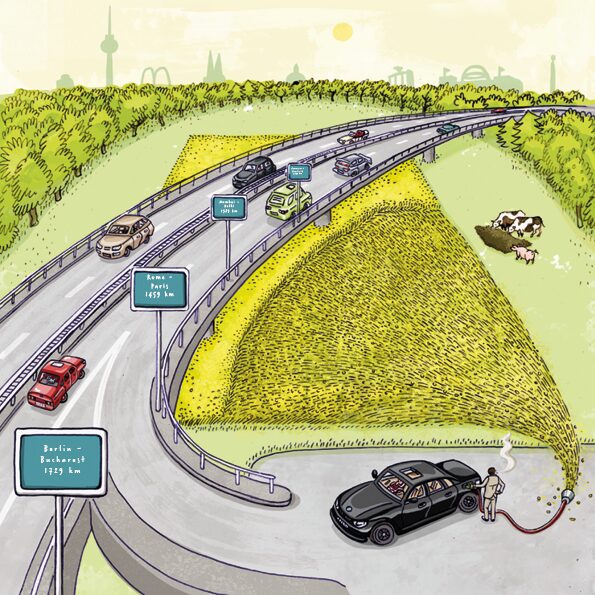Burning Out

How far can you travel with 2000 m²?
Is producing fuel and energy from agricultural fields truly a sustainable solution to the climate crisis? Let’s do the maths: the average rapeseed yield from 2000 m² of land in the European Union is about 650 kilograms, which can be converted into 272 litres of diesel. With a consumption rate of roughly 7 litres per 100 kilometres, this would allow a vehicle to travel around 3900 kilometres, just enough for a round trip from Brussels to Lisbon. However, this would use up the entire arable land for a year, leaving nothing to eat except for the remnants of the seed, a ‘pressed rapeseed cake’, which is typically used as animal feed. On average, a car in the EU covers 10,000 kilometres per year.
In Germany, nearly one-fifth of all arable land is dedicated to producing biofuel and energy through biogas facilities. If Germany’s cars reduced fuel consumption by just one litres per 100 kilometres, the savings would exceed the total fuel and biogas output from these fields
